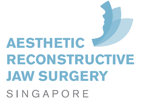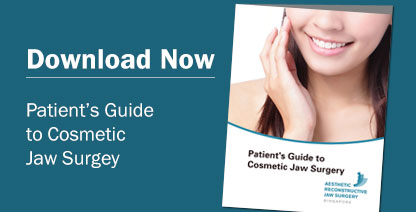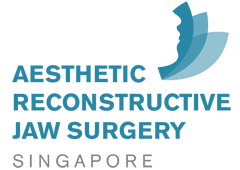Share this
Single Jaw vs Double Jaw Surgery
on July 22, 2015

Disharmonies in jaw development is quite a common problem. They can come in the form of disproportionate horizontal growth of one jaw compared with the other or it can manifest as asymmetry, which is disproportionate growth of one side of the jaws compare to the other side, ie a left-right disharmony.
Yet others may have excessive or deficient growth of the jaws in the vertical dimension, resulting in a long face or short face. To complicate things further, there is often a combination of the above proportional discrepancies.
As such, a proper diagnosis is of paramount importance as that determines what kind of operation is needed. However, one of the common questions that patients ask is whether they need a single or double jaw operation.
I often pause for a moment before I answer that question, trying to understand what the real question is. Some are concern about the morbidity of surgery, assuming that a double jaw surgery is doubly more traumatic. Others are concern about cost, thinking that double jaw means double the cost. While these are real concerns, we need to always remember what is the motivation to seek surgery in the first place.
Double Jaw Surgery Case Study
Some years ago, a young girl, about 18 years old, came in with her mother for a consultation. The girl has a long lower jaw and a flat midface. Her concern is primarily aesthetic in nature even though her function can be improved with surgical correction of the jaw position.
What she needed was a double jaw surgery to move her upper jaw and midface forward and her lower jaw backward. However, her mother was understandably concern about the morbidity of the surgery. She wanted to keep things simple and in her mind, that meant a single jaw surgery.
So she requested to have only the lower jaw shifted back to get a good bite. I told her that aesthetically, the results would not be good as the degree of setback of the lower jaw will be too great and that will result in a flat face with no jaw line.
However, she was unable to overcome her concern about the invasiveness of a two-jaw operation. The patient herself understood and was prepared to do the proper surgery but we needed her mother’s consent. In the end, I advised her to seek a second opinion as I was not going to do an operation that changes one form of deformity to another. Furthermore, if she does not like the look after a one –jaw surgery, it will be even more difficult to reverse that and do a double jaw surgery.
Double Jaw Surgery Costs
And then there was this patient who was concern with cost. A single jaw surgery is cheaper than a double jaw surgery. But what’s the point of having a surgery that does not solve your problem. I told him that it is far better to save up for the right surgery then to proceed with just any surgery that can only address some of the problems. Doing a single jaw surgery when a double jaw surgery is needed is effectively substituting one form of deformity for another.
Single Jaw Surgery Applications
So what kind of deformity qualifies for a single jaw operation? In my practice, there are very few single jaw surgeries. This is because patients who are bothered enough about their looks to seek surgery often have a significant skeletal discrepancy that cannot be satisfactorily corrected by correcting only one jaw. Conditions that are best corrected with single jaw operations are usually minor deformities that cannot be corrected by orthodontic treatment alone. Typically, this group of patients has a slightly protruding lower jaw whereby the upper and lower front teeth can still bite together.
Most patients with a significant “underbite” thinks that it is their lower jaw that is excessive. However, sometimes, the lower jaw is normal but the upper jaw is deficient in growth. In such cases, a single jaw surgery that repositions the upper jaw in a more forward position is needed, instead of shifting the lower jaw backwards.
Ultimately, the most important thing to do is to do the surgery that will correct the chief concern of the patient. If a single jaw operation cannot do that and you cannot or do not accept a double jaw operation, it is best not to do anything.
Good Candidates for Jaw Surgery
Not everyone is a good candidate for jaw surgery. Below are the characteristics of good candidates for jaw surgery:
Severe Overbite or Underbite
One of the most common reasons for jaw surgery is a severe overbite or underbite. This condition occurs when the upper or lower jaw is misaligned, causing the teeth to not fit together properly. This can lead to difficulty chewing, biting, or speaking, as well as jaw pain or headaches. Good candidates for jaw surgery are those who have a severe overbite or underbite that cannot be corrected with orthodontic treatment alone.
Difficulty Chewing, Biting, or Speaking
Patients who have difficulty chewing, biting, or speaking due to jaw misalignment may be good candidates for jaw surgery. This condition can be caused by a variety of factors, including a misaligned jaw, a small or narrow jaw, or a cleft palate. Jaw surgery can help to correct these issues and improve the patient's ability to eat, speak, and perform other daily activities.
Chronic Jaw Pain or Headaches
Chronic jaw pain or headaches can be a sign of a more serious condition, such as TMJ disorder or a misaligned jaw. Good candidates for jaw surgery are those who have tried other treatments, such as medication or physical therapy, but have not found relief from their symptoms. Jaw surgery can help to correct the underlying issue and alleviate chronic pain or headaches.
Sleep Apnea or Other Breathing Problems
Sleep apnea is a condition that causes a person to stop breathing temporarily during sleep. This can be caused by a variety of factors, including a misaligned jaw or narrow airway. Good candidates for jaw surgery are those who have been diagnosed with sleep apnea or other breathing problems and have not found relief from other treatments.
Facial Asymmetry or Imbalance
Facial asymmetry or imbalance can be caused by a variety of factors, including a misaligned jaw, congenital defects, or facial trauma. Good candidates for jaw surgery are those who have a noticeable difference in the size or shape of their jaw, which can affect their facial appearance and self-esteem. Jaw surgery can help to correct these issues and improve facial symmetry and balance.
Congenital Defects or Facial Trauma
Some patients may be born with congenital defects that affect the development of their jaw. Others may experience facial trauma, such as a broken jaw, that requires surgical intervention. Good candidates for jaw surgery are those who have congenital defects or have experienced facial trauma that has affected the alignment or function of their jaw.
Temporomandibular Joint (TMJ) Disorder
The temporomandibular joint (TMJ) is the joint that connects the jawbone to the skull. TMJ disorder is a condition that causes pain and discomfort in the jaw joint and surrounding muscles. Good candidates for jaw surgery are those who have been diagnosed with TMJ disorder and have not found relief from other treatments, such as medication or physical therapy.
Benefits of Jaw Surgery
Jaw surgery is typically performed by an oral and maxillofacial surgeon, and it can have a significant impact on a patient's quality of life. Below are some of the benefits of jaw surgery.
Improved Function
One of the primary benefits of jaw surgery is improved function. Patients who have a misaligned jaw or bite may experience difficulty chewing, biting, or speaking. Jaw surgery can help to correct these issues and improve the patient's ability to perform daily activities, such as eating and speaking.
Alleviation of Pain and Discomfort
Jaw misalignment can cause chronic pain and discomfort in the jaw joint and surrounding muscles. This can lead to headaches, neck pain, and other symptoms. Jaw surgery can help to correct the underlying issue and alleviate pain and discomfort.
Improved Breathing
Jaw surgery can also improve breathing in patients who have a narrow airway or sleep apnea. By correcting the jaw alignment, the airway can be widened, allowing for better airflow and improved breathing during sleep.
Enhanced Aesthetics
Jaw surgery can also improve the appearance of the face by correcting facial asymmetry or imbalance. Patients who have a misaligned jaw may have a noticeable difference in the size or shape of their jaw, which can affect their facial appearance and self-esteem. Jaw surgery can help to correct these issues and improve facial symmetry and balance.
Improved Oral Health
Jaw misalignment can also affect oral health by causing issues such as gum disease, tooth decay, and tooth loss. By correcting the jaw alignment, patients can improve their oral health and reduce the risk of these issues.
Boosted Self-Confidence
Jaw misalignment can have a significant impact on a patient's self-confidence and self-esteem. By correcting the underlying issue, patients can feel more confident in their appearance and improve their overall quality of life.
Long-Term Results
Jaw surgery provides long-term results that can last a lifetime. While the recovery period may take several weeks or months, the benefits of jaw surgery can be enjoyed for many years to come.
Possible Risks and Complications of Jaw Surgery
While jaw surgery can provide numerous benefits, it is important to understand the possible risks and complications associated with the procedure.
Infection
As with any surgical procedure, there is a risk of infection following jaw surgery. Patients may be given antibiotics to reduce the risk of infection, but it is important to follow all post-operative instructions to minimize the risk of complications.
Bleeding
Bleeding is another possible complication of jaw surgery. While some bleeding is normal following surgery, excessive bleeding may require additional medical attention.
Nerve Damage
Jaw surgery can cause nerve damage, which can result in numbness, tingling, or loss of sensation in the face, lips, or tongue. While this is a rare complication, it is important to discuss the risks with your surgeon prior to the procedure.
Swelling and Bruising
Swelling and bruising are common after jaw surgery and can last for several weeks. While these symptoms are not typically serious, they can be uncomfortable and may require pain medication or other treatments.
Difficulty Eating and Speaking
Following jaw surgery, patients may experience difficulty eating and speaking due to swelling and discomfort. This is typically a temporary issue and can be managed with a soft diet and speech therapy.
Malocclusion
Malocclusion is a possible complication of jaw surgery that occurs when the teeth do not fit together properly after the procedure. This can be corrected with orthodontic treatment, but it is important to discuss the risks with your surgeon prior to the procedure.
Relapse
In some cases, the jaw may gradually shift back to its original position after surgery. While this is a rare complication, it is important to follow all post-operative instructions to minimize the risk of relapse.
Anesthesia Complications
Jaw surgery typically requires general anesthesia, which carries its own set of risks and complications. These may include allergic reactions, breathing problems, and other issues related to anesthesia
Aftercare Tips for Jaw Surgery
While the surgery itself is a major step, the recovery process is equally important. Proper aftercare can help to minimize discomfort and complications and ensure a successful outcome. Below are some aftercare tips after jaw surgery.
Follow All Post-Operative Instructions
Following jaw surgery, your surgeon will provide you with specific post-operative instructions to follow. It is important to follow these instructions carefully to ensure proper healing and minimize the risk of complications.
Manage Pain and Discomfort
Pain and discomfort are common after jaw surgery. Your surgeon may prescribe pain medication or recommend over-the-counter pain relievers to manage these symptoms. It is important to take medication as directed and to avoid taking aspirin, which can increase the risk of bleeding.
Apply Ice Packs
Applying ice packs to the face can help to reduce swelling and discomfort after jaw surgery. Your surgeon may recommend applying ice packs for 20 minutes at a time, several times a day, for the first few days after surgery.
Follow a Soft Diet
Following jaw surgery, you will need to follow a soft diet to avoid putting pressure on the jaw. This may include foods such as soup, yogurt, mashed potatoes, and scrambled eggs. Your surgeon may provide you with a specific diet plan to follow.
Practice Good Oral Hygiene
Proper oral hygiene is important after jaw surgery to prevent infection and promote healing. Your surgeon may recommend using a special mouthwash or other oral hygiene products to keep the mouth clean.
Avoid Smoking and Alcohol
Smoking and alcohol can delay healing and increase the risk of complications after jaw surgery. It is important to avoid smoking and alcohol for several weeks after surgery.
Rest and Relax
Rest and relaxation are important after jaw surgery to allow the body to heal. Your surgeon may recommend avoiding strenuous activities and getting plenty of rest for the first few weeks after surgery.
Attend Follow-Up Appointments
Following jaw surgery, you will need to attend follow-up appointments with your surgeon to monitor your progress and ensure proper healing. It is important to attend these appointments and to follow any additional instructions provided by your surgeon.
Frequently Asked Questions
The surgery takes about 3-4 hours if both upper and lower jaws need to be corrected. For single jaw surgery, it takes about 1-2 hours.
Yes, it is important to wear braces after the surgery to ensure proper fitting of the upper and lower teeth. This is important not just for proper masticatory function but also for stability of the surgical results.
Soft diet is needed for the first month to minimise excessive force on the jaw bones. Thereafter, a gradual return to regular diet can be done over the following few weeks.
In cases, where surgery is done without any presurgical orthodontics, a splint may be needed after jaw surgery. In most cases where a braces had been used to prepare the teeth for the jaw surgery, a splint is usually not needed.
Yes, cosmetic enhancement can be achieved through jaw surgery. However, this cannot be done at the expense of function. Hence the limit to which jaw surgery can be done to change facial appearance is the maintenance of optimal masticatory function.
Jaw surgery should not be done on children and young teenagers who have not completed their growth. Some teenagers who are in the late teens, especially females, are eligible for jaw surgery. This is because most females achieve skeletal maturity by mid teens.
Initial recovery takes about a month. This is the time that is needed for the swelling to subside and to allow the jaw functions to revert to normal. Thereafter, the bone healing will take about a year to consolidate.
As this is a major surgery, some degree of pain is expected. However, with good post operative pain control using analgesics, it is uncommon to have a patient complaining of pain. Most patients do not require painkillers for more than five days after surgery.
Share this
- Jaw Surgery (93)
- Dental Implants Singapore (90)
- Orthognathic Surgery (48)
- Replacing Missing Teeth (26)
- Missing Teeth Options (23)
- Underbite (23)
- Bone Grafting (21)
- Costs (18)
- Facial Aesthetics (18)
- Aesthetics (17)
- dental implants (16)
- corrective jaw surgery (15)
- BOTOX (11)
- Dermal Fillers (11)
- Wisdom teeth (10)
- Fixed Implant Dentures (8)
- Loose Dentures Singapore (6)
- Medisave (6)
- sleep apnea (6)
- Braces (5)
- Dental Pain (5)
- Dentures in Singapore (5)
- Loose Teeth (5)
- Tooth Extraction (5)
- jaw deformities (5)
- bimax (4)
- bone graft (4)
- maxillomandibular advancement (4)
- all-on-4 (3)
- bimaxillary protrusion (3)
- chin implant (3)
- facial asymmetry (3)
- full mouth dental implants (3)
- genioplasty (3)
- immediate implant (3)
- removal of an integrated dental implant (3)
- third molars (3)
- wisdom tooth surgery (3)
- My Dentures Don't Fit (2)
- VME (2)
- bone graft healing (2)
- distraction osteogenesis (2)
- medical tourism (2)
- obstructive sleep apnea (2)
- orthodontics (2)
- plastic surgery (2)
- CT guided dental implants (1)
- Double jaw surgery (1)
- Invisalign (1)
- Periodontal Disease (1)
- Permanent Dentures Singapore (1)
- before and after photos (1)
- facial trauma (1)
- fractured dental implant (1)
- oral appliance therapy (1)
- root canal treatment (1)
- veneers (1)
- vertical maxillary excess (1)
- September 2019 (2)
- July 2019 (2)
- May 2019 (2)
- August 2018 (1)
- October 2017 (1)
- September 2017 (2)
- August 2017 (1)
- June 2017 (2)
- May 2017 (4)
- April 2017 (1)
- March 2017 (1)
- February 2017 (3)
- January 2017 (3)
- December 2016 (1)
- November 2016 (2)
- October 2016 (4)
- September 2016 (9)
- August 2016 (5)
- July 2016 (11)
- June 2016 (14)
- May 2016 (6)
- April 2016 (2)
- March 2016 (1)
- January 2016 (7)
- December 2015 (10)
- November 2015 (4)
- October 2015 (9)
- September 2015 (7)
- August 2015 (1)
- July 2015 (6)
- June 2015 (3)
- May 2015 (7)
- April 2015 (5)
- March 2015 (8)
- January 2015 (5)
- December 2014 (7)
- November 2014 (7)
- October 2014 (6)
- September 2014 (8)
- August 2014 (5)
- July 2014 (7)
- June 2014 (8)
- May 2014 (9)
- April 2014 (10)
- March 2014 (6)
- February 2014 (8)
- January 2014 (3)
Subscribe by email
Email subscription




No Comments Yet
Let us know what you think